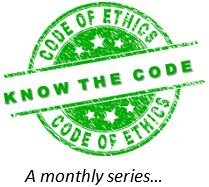Know the Code: Fraud, Waste and Abuse
/By the Office of Ethics and Compliance
This month, in recognition of International Fraud Awareness Week (Nov. 14-20), we are highlighting the Code of Ethics requirements regarding fraud, waste and abuse, and how to prevent and report fraudulent activity.
Organizations worldwide lose an estimated 5% of their annual revenues to fraud, according to the 2020 ACFE Report to the Nations on Occupational Fraud and Abuse. Fraud takes many shapes and forms, among them corporate fraud, consumer fraud, tax fraud, identity theft and many others.
What is fraud?
In the broadest sense, the term fraud encompasses actions that are meant to deceive for financial or personal gain. It’s any intentional or deliberate act to deprive another of property or money by guile, deception, or other unfair means. Fraud, such as improper cost reports, double or phantom billing, committed by employees or vendors represents a real risk to the County.
Why should we care about fraud?
Fraud costs billions of dollars in damage to companies, governments and individuals each year. Additionally, fraud can dramatically affect the quality of life of its victims—and the employees of its victims—resulting in job losses, the loss of savings and investments, weakened trust in public institutions and a significant strain on resources.
Would you trust a bank with a reputation of defrauding its account holders? Do you think customers, clients or the public will trust an organization that cannot properly protect their assets? As a County, we have “zero tolerance” for fraud, we investigate all fraud complaints and we train to raise awareness of potential fraud.
What can be done to prevent fraud?
Every employee, regardless of position, can help prevent and detect fraud. Trust your instincts–if you observe something that does not seem right, you should evaluate the situation. Then, if you still have doubts or suspicions, speak up, report irregularities to managers, OEC or the Ethics Hotline at 866-549-0004.
Preventing fraud is not just the responsibility of management, supervisors or the audit team. Everyone has a role to play in the prevention of fraud. Help the County protect its finances—and the public—from harm.
Check out the OEC webpage on InSite for information about upcoming Ethics & Compliance Program events, training, and resources including monthly “Know the Code” articles and micro-training videos.
If you have questions about ethics and compliance training or how to access the training and other ethics and compliance resources, please contact the OEC team at oec@sdcounty.ca.gov or (619) 531-5174. HHSA staff may also contact the dedicated HHSA Compliance and Privacy team at compliance.hhsa@sdcounty.ca.gov or (619) 338-2807.
Know the Code is a monthly series highlighting different sections of the County of San Diego Code of Ethics. The mission of the Office of Ethics and Compliance (OEC) is to assist in fulfilling the County’s commitment to the highest standards of ethics and compliance.

